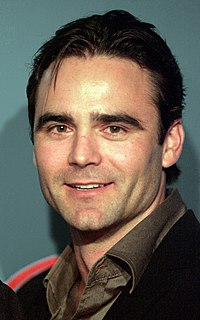A Quote by Eugene Delacroix
What moves those of genius, what inspires their work is not new ideas, but their obsession with the idea that what has already been said is still not enough.
Related Quotes
I've known people who had fantastic ideas, but who couldn't get the idea off the ground because they approached everything weakly. They thought that their ideas would somehow take off by themselves, or that just coming up with an idea was enough. Let me tell you something - it's not enough. It will never be enough. You have to put the idea into action. If you don't have the motivation and the enthusiasm, your great idea will simply sit on top of your desk or inside your head and go nowhere.
[N]o scientist likes to be criticized. ... But you don't reply to critics: "Wait a minute, wait a minute; this is a really good idea. I'm very fond of it. It's done you no harm. Please don't attack it." That's not the way it goes. The hard but just rule is that if the ideas don't work, you must throw them away. Don't waste any neurons on what doesn't work. Devote those neurons to new ideas that better explain the data. Valid criticism is doing you a favor.
Creativity is the generation and initial development of new, useful ideas. Innovation is the successful implementation of those ideas in an organization. Thus, no innovation is possible without the creative processes that mark the front end of the process: identifying important problems and opportunities, gathering relevant information, generating new ideas, and exploring the validity of those ideas.
Almost all major scientific projects today are huge collaborations, yet we still have this public obsession with the idea of the individual scientific genius. One of my goals as a science communicator is to celebrate the collaborative dimensions of science, which I think will be critical for facing the ecological and resource challenges ahead. In a sense, we are all corals now.
Ideas are dangerous, but the man to whom they are least dangerous is the man of ideas. He is acquainted with ideas, and moves among them like a lion-tamer. Ideas are dangerous, but the man to whom they are most dangerous is the man of no ideas. The man of no ideas will find the first idea fly to his head like wine to the head of a teetotaller.








































